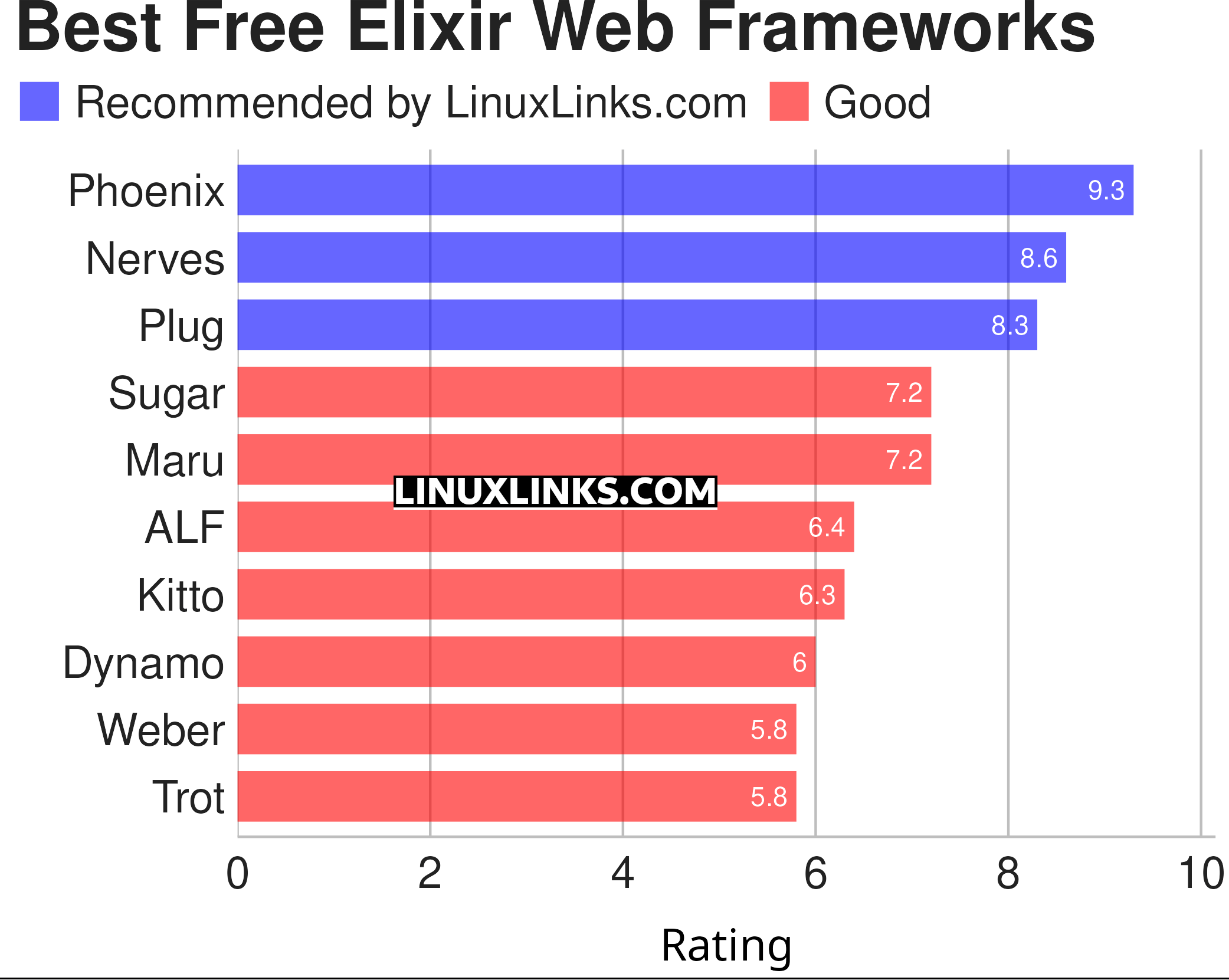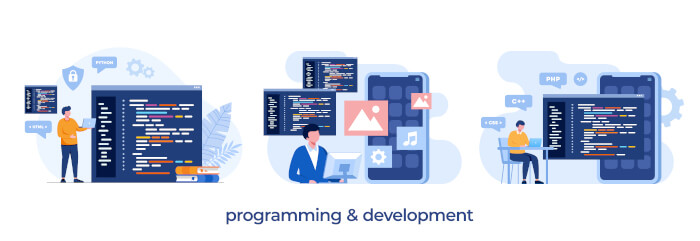One of the types of software that’s important for a web developer is the web framework. A framework “is a code library that makes a developer’s life easier when building reliable, scalable, and maintainable web applications” by providing reusable code or extensions for common operations. By saving development time, developers can concentrate on application logic rather than mundane elements.
A web framework offers the developer a choice about how to solve a specific problem. By using a framework, a developer lets the framework control portions of their application. While it’s perfectly possible to code a web application without using a framework, it’s more practical to use one.
Here’s our verdict. Only free and open source software is eligible for inclusion.

Let’s explore the 10 Elixir web frameworks. For each program we have compiled its own portal page, a full description with an in-depth analysis of its features, together with links to relevant resources.
| Elixir Web Frameworks | |
|---|---|
| Phoenix | Rock-solid web framework that improves the Model-View-Controller architecture |
| Nerves | Craft and deploy bulletproof embedded software |
| Plug | Specification and conveniences for composable modules between web applications |
| Sugar | Modular web framework |
| Maru | REST-like API framework for Elixir inspired by grape |
| ALF | Flow-based application layer framework |
| Kitto | Framework to create dashboards |
| Dynamo | Experimental web framework |
| Weber | MVC web framework |
| Trot | Web micro-framework based on Plug and Cowboy |
This article has been revamped in line with our recent announcement.
 Read our complete collection of recommended free and open source software. Our curated compilation covers all categories of software. Read our complete collection of recommended free and open source software. Our curated compilation covers all categories of software. Spotted a useful open source Linux program not covered on our site? Please let us know by completing this form. The software collection forms part of our series of informative articles for Linux enthusiasts. There are hundreds of in-depth reviews, open source alternatives to proprietary software from large corporations like Google, Microsoft, Apple, Adobe, IBM, Cisco, Oracle, and Autodesk. There are also fun things to try, hardware, free programming books and tutorials, and much more. |

